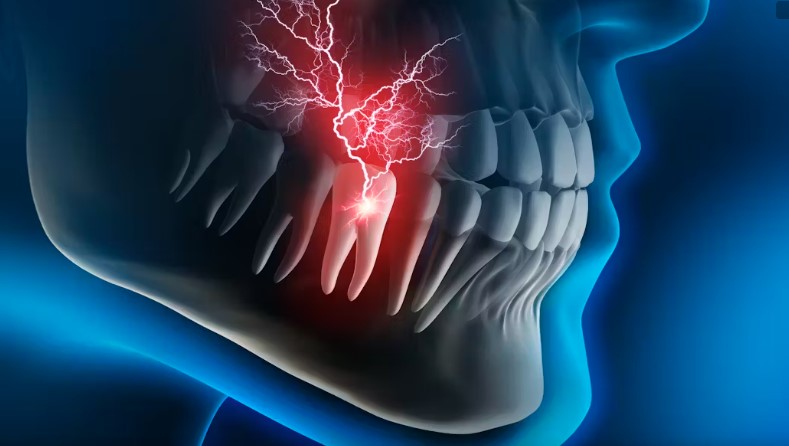
Dentinal hypersensitivity, also known as tooth sensitivity, is a common dental problem characterized by a sharp, sudden pain in one or more teeth in response to certain stimuli, such as cold or hot temperatures, sweet or acidic foods, or even brushing and flossing. It is caused by the exposure of dentin, the layer of tissue that lies beneath the hard outer layer of your teeth, to external stimuli.
There are several factors that can contribute to dentinal hypersensitivity, including gum recession, enamel erosion, tooth decay, and grinding or clenching of teeth. The management of dentinal hypersensitivity involves identifying and addressing the underlying cause of the problem.
One of the most effective ways to manage dentinal hypersensitivity is through proper oral hygiene. Brushing your teeth twice a day with a soft-bristled toothbrush and using a fluoride toothpaste can help strengthen the enamel and reduce sensitivity. Flossing regularly can also help remove plaque and prevent gum recession.
Another effective treatment option for dentinal hypersensitivity is the use of desensitizing toothpaste or gel. These products contain compounds that block the transmission of pain signals from the tooth surface to the nerve endings in the pulp, thereby reducing sensitivity. They are typically applied directly to the affected teeth and used daily for several weeks or months.
In more severe cases of dentinal hypersensitivity, your dentist may recommend other treatment options, such as bonding or sealing, which involve applying a protective coating to the exposed dentin to reduce sensitivity. They may also recommend dental procedures, such as fillings or root canal therapy, to address underlying dental problems that may be contributing to your sensitivity., also known as tooth sensitivity, is a common dental problem characterized by a sharp, sudden pain in one or more teeth in response to certain stimuli, such as cold or hot temperatures, sweet or acidic foods, or even brushing and flossing. It is caused by the exposure of dentin, the layer of tissue that lies beneath the hard outer layer of your teeth, to external stimuli.
At family dental clinic Guwahati you can get solution regarding to your dentinal hypersensitivity.
Factors contribute to Dentinal hypersensitivity
There are several factors that can contribute to dentinal hypersensitivity, including gum recession, enamel erosion, tooth decay, and grinding or clenching of teeth. The management of dentinal hypersensitivity involves identifying and addressing the underlying cause of the problem.
One of the most effective ways to manage dentinal hypersensitivity is through proper oral hygiene. Brushing your teeth twice a day with a soft-bristled toothbrush and using a fluoride toothpaste can help strengthen the enamel and reduce sensitivity. Flossing regularly can also help remove plaque and prevent gum recession.
Another effective treatment option for dentinal hypersensitivity is the use of desensitizing toothpaste or gel. These products contain compounds that block the transmission of pain signals from the tooth surface to the nerve endings in the pulp, thereby reducing sensitivity. They are typically applied directly to the affected teeth and used daily for several weeks or months.
In more severe cases of dentinal hypersensitivity, your dentist may recommend other treatment options, such as bonding or sealing, which involve applying a protective coating to the exposed dentin to reduce sensitivity. They may also recommend dental procedures, such as fillings or root canal therapy, to address underlying dental problems that may be contributing to your sensitivity.
FAQ ON Dentinal Hypersensitivity
- Can dentin hypersensitivity be cured?
- There are certain treatment options such as desensitizing toothpaste, fluoride varnish, and dental bonding can alleviate symptoms.
- Can dentin hypersensitivity cause headaches?
- It is rare for dentin hypersensitivity to directly cause headaches, but if the pain is severe or chronic, it may lead to stress and tension headaches.
- Can dentin hypersensitivity cause tooth pain?
- Yes, dentin hypersensitivity often causes sharp pain or discomfort in the teeth when exposed to hot, cold, or sweet food and drinks.
- Can dentin hypersensitivity cause tooth pain?
- Yes, dentin hypersensitivity often causes sharp pain or discomfort in the teeth when exposed to hot, cold, or sweet food and drinks.
- What can cause dentinal hypersensitivity?
- Dentinal hypersensitivity can be caused by various factors such as brushing too hard, gum recession, tooth decay, teeth grinding, acidic diet, and gum disease.
- Does dentin hypersensitivity go away?
- Dentin hypersensitivity may subside or improve with proper oral hygiene and treatment, but it may also recur if the underlying causes are not addressed.

